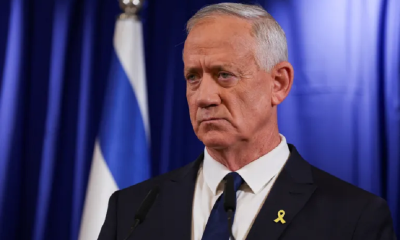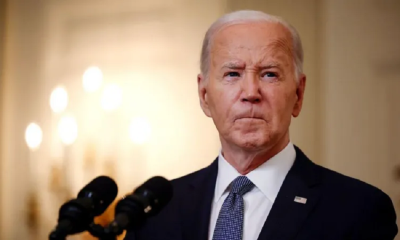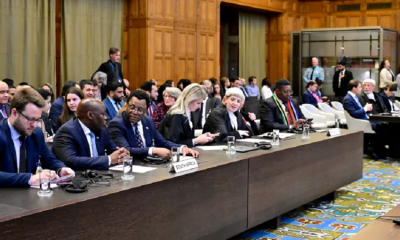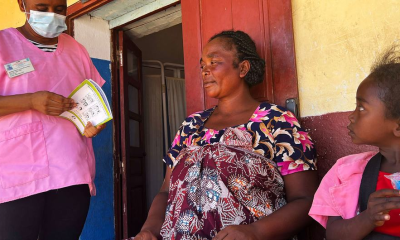Foreign News
Gaza aid reaches shore in first sea delivery
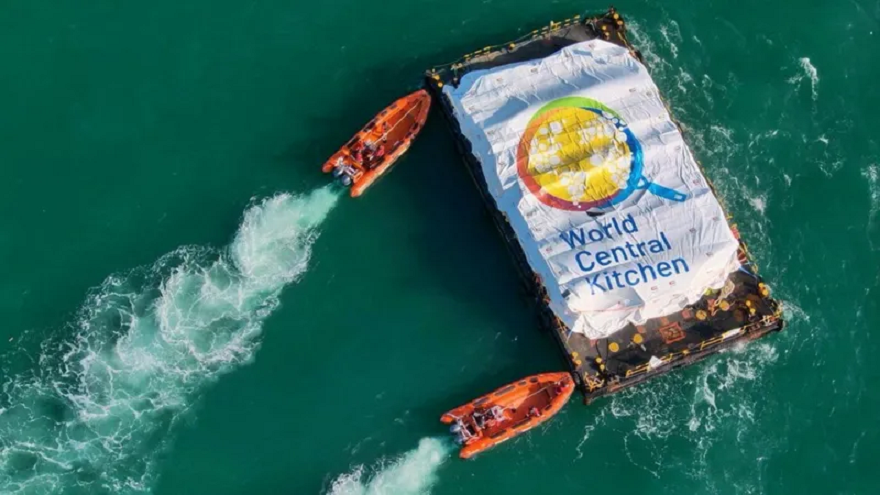
The first ship towing a barge of humanitarian aid to Gaza has unloaded supplies onto the shore.
The Spanish ship Open Arms left Cyprus on Tuesday with 200 tonnes of food desperately needed for Gaza, which the UN says is on the brink of famine.
Videos posted online show a crane moving crates from the barge to lorries waiting on a purpose-built jetty.
It marks the start of a trial to see if sea deliveries are effective, after air and land deliveries proved difficult.
World Central Kitchen (WCK), which supplied the food, carried out the mission in co-operation with the United Arab Emirates (UAE), to deliver the barge’s cargo of rice, flour, legumes, canned vegetables and canned proteins
Gaza has no functioning port, so a jetty stemming from the shoreline was built by WCK’s team. How the food will be distributed in Gaza remains unclear.
WCK’s founder, celebrity chef José Andrés wroteon X (formerly Twitter) that all the food aid from the barge had been loaded into 12 lorries. “We did it!” he wrote, adding that this was a test to see if they could bring even more aid in the next shipment – up to “thousands of tons a week”.
In a statement, Israel said the Open Arms vessel and its cargo were inspected in Cyprus, and that Israel Defense Forces (IDF) troops had been deployed to secure the shoreline.
The Open Arms charity, which operates the ship, shared the crane video late on Friday, as teams worked through the night to get the aid onto dry land. This delivery has been highly anticipated since the ship set off from a port in Larnaca on Tuesday.
If this sea mission is deemed a success, other aid ships will likely follow as part of an international effort to get more aid into Gaza. The ships would use a newly opened sea route to travel directly to the region.
Separately, the US is planning to build its own floating dock off the coast to boost sea deliveries. The White House says it could see two million meals a day enter Gaza, but while a military ship is en route with equipment on board to build the dock, questions remain about the logistics of the plan.
Military operations and the breakdown of social order have severely hampered aid distribution, while Gaza’s own food production has been severely affected, with farms, bakeries and factories destroyed or inaccessible.
The quickest, most effective way to get aid into the territory is by road, but aid agencies say Israeli restrictions mean a fraction of what is needed is getting in.
The World Food Programme had to temporarily pause its land deliveries after convoys came under gunfire and looting. And an air drop turned deadly last week when five people were reportedly killed when a parachute failed and they were hit by the aid package.
The UN has warned that famine is “almost inevitable” in Gaza without urgent action, and the EU’s foreign policy chief Josep Borrell has accused Israel of creating a man made disaster and using starvation as a weapon of war.
Israel has vehemently denied it is to blame for Gaza’s food shortages as it is allowing aid through two crossings in the south. Instead, it has blamed aid agencies of logistical failures.
Negotiations for a ceasefire in Gaza are ongoing on Friday, with Israel dismissing the Hamas’ latest ceasefire proposal.
Hamas said it gave mediators a “comprehensive vision” of a truce, but Israeli Prime Minister Benjamin Netanyahu called this “unrealistic”.
The war began when Hamas gunmen attacked southern Israel on 7 October, killing about 1,200 people and seizing 253 hostages. More than 31,400 people have been killed in Gaza since then, the Hamas-run health ministry says.
(BBC)
Foreign News
Iraq sandstorm leaves many with breathing problems
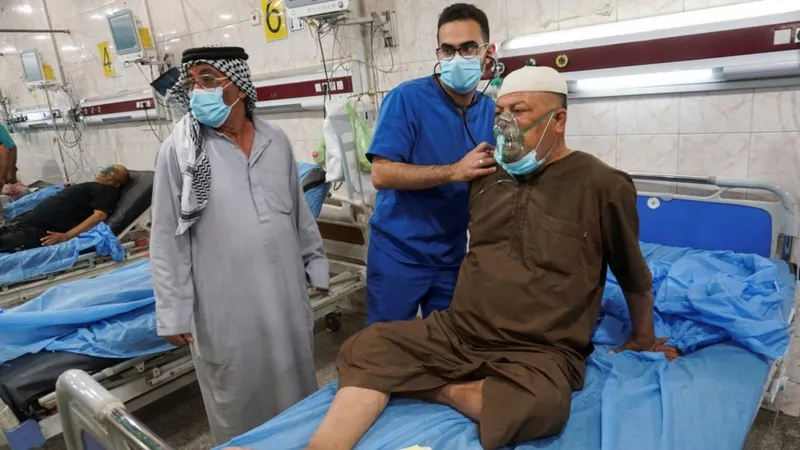
More than a thousand people have been left with respiratory problems after a sandstorm swept across Iraq’s central and southern parts of the country, health officials said.
One official in Muthanna province reported to the AFP news agency at least 700 cases of what they said was suffocation.
Footage shared online showed areas cloaked in a thick orange haze, with local media reporting power cuts and the suspension of flights in a number of regions.
Dust storms are common in Iraq, but some experts believe they are becoming more frequent due to climate change.
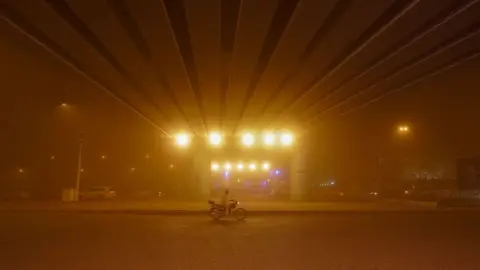
Pedestrians and police wore face masks to protect themselves from the dust and paramedics were on site to assist people with difficulty breathing, according to AFP.
Hospitals in Muthanna province in southern Iraq received at least “700 cases of suffocation”, a local health official said.
More than 250 people were taken to hospital in Najaf province, and at least 322 patients including children were sent to hospitals in Diwaniyah province.
A further 530 people reported breathing issues in Dhi Qar and Basra provinces.
The sandstorm blanketed Iraq’s southern provinces in an orange cloud that reduced visibility to less than one kilometre (0.62 mile).
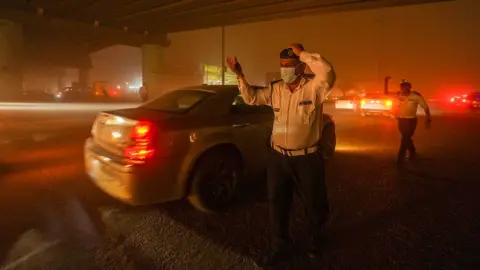
The authorities were forced to shut down airports in the provinces of Najaf and Basra.
Conditions are expected to gradually improve by Tuesday morning, according to local weather services.
Iraq is listed by the UN as one of the five countries most vulnerable to climate change as it encounters regular sandstorms, sweltering heat and water scarcity.
A severe sandstorm in 2022 left one person dead and more than 5,000 needing treatment for respiratory illnesses.
Iraq will be experiencing more “dust days” in the future, according to its environment ministry.
[BBC]
Foreign News
Indian billionaire jeweller Mehul Choksi arrested in Belgium
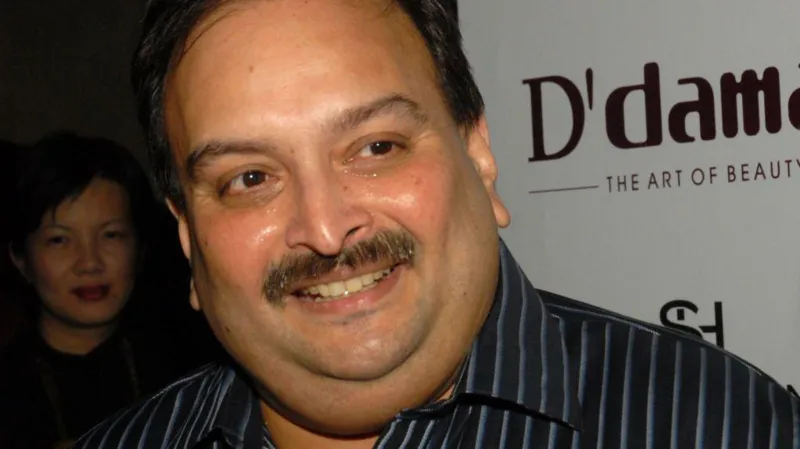
Indian businessman Mehul Choksi has been arrested in Belgium following India’s request for his extradition.
Choksi, who left India in 2018, was arrested on Saturday, his lawyer Vijay Aggarwal told the BBC on Monday.
The diamond merchant is wanted by India for allegedly defrauding one of the country’s largest banks of nearly $1.8bn (£1.3bn).
Choksi has not commented publicly on the case, but his lawyer said they would appeal against his detention and also oppose his extradition to India.
“These are the obvious grounds on which we will argue the case, that he is not a flight risk and secondly, that he is extremely sick. He is undergoing cancer treatment,” Mr Agarwal said. He added that they would “contest the extradition on grounds that there isn’t enough evidence against him and the extradition request is politically motivated and the trial in India may not be fair”.
The BBC has reached out to India’s foreign ministry and financial crimes agency – the Enforcement Directorate (ED) – for comment.
According to a Times of India report, Choksi was arrested on the basis of two non-bailable warrants issued by an Indian court in 2018 and 2021 – although it’s not clear why the action came now.
Mehul Choksi and his nephew, Nirav Modi, are wanted by Indian authorities in connection with a $1.8bn fraud case at Punjab National Bank (PNB).
Niray Modi, who’s also been living abroad since 2018, is lodged in a prison in London and is awaiting extradition to India.
Both were high-profile diamond traders. Modi’s jewellery was worn by several Hollywood celebrities such as Naomi Watts and Kate Winslet. One of the biggest Bollywood stars, Priyanka Chopra, was his company’s brand ambassador. Choksi, meanwhile, was the owner of Gitanjali Gems, an Indian jewellery retailer which once had about 4,000 stores across India.
The ED has accused Choksi and Modi of colluding with some employees of PNB’s Brady House branch in Mumbai city to get fraudulent advances for payments to overseas suppliers of jewels.
These funds were then allegedly diverted and laundered.
Choksi and Modi have denied the allegations against them.
After leaving India, Choksi reportedly travelled to the US and later to Antigua – where he has citizenship. In 2021, he was reportedly arrested in Dominica and deported back to Antigua.
Hariprasad SV, a Bengaluru-based entrepreneur who had in 2016 alerted authorities about the alleged scam at PNB, said Choksi’s arrest was “great news”. “Apart from bringing him back, the most important thing is to get back all those billions of dollars he looted from India,” he told ANI news agency.
[BBC]
Foreign News
Trump exempts smartphones and computers from new tariffs
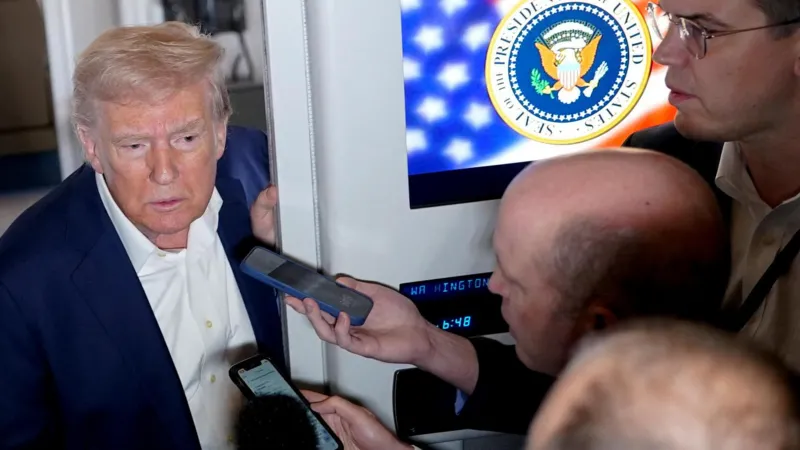
US President Donald Trump’s administration has exempted smartphones, computers and some other electronic devices from “reciprocal” tariffs, including the 125% levies imposed on Chinese imports.
US Customs and Border Patrol published a notice late on Friday explaining the goods would be excluded from Trump’s 10% global tariff on most countries and the much larger Chinese import tax.
The move comes after concerns from US tech companies that the price of gadgets could skyrocket, as many of them are made in China.
This is the first significant reprieve of any kind in Trump’s tariffs on China, with one trade analyst describing it as a “game-changer scenario”.
[BBC]
-

 News3 days ago
News3 days agoSuspect injured in police shooting hospitalised
-

 Features5 days ago
Features5 days agoRobbers and Wreckers
-

 Features6 days ago
Features6 days agoSri Lanka’s Foreign Policy amid Geopolitical Transformations: 1990-2024 – Part III
-

 Midweek Review6 days ago
Midweek Review6 days agoInequality is killing the Middle Class
-

 Business4 days ago
Business4 days agoSanjiv Hulugalle appointed CEO and General Manager of Cinnamon Life at City of Dreams Sri Lanka
-

 Business5 days ago
Business5 days agoNational Anti-Corruption Action Plan launched with focus on economic recovery
-

 Features3 days ago
Features3 days agoLiberation Day tariffs chaos could cause permanent damage to US economy, amid global tensions
-
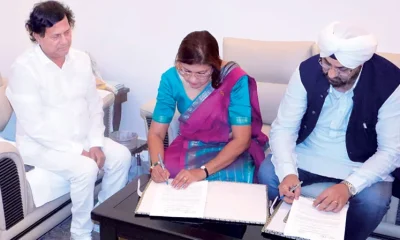
 News6 days ago
News6 days agoIChemC signs MoU with KIIT, India


